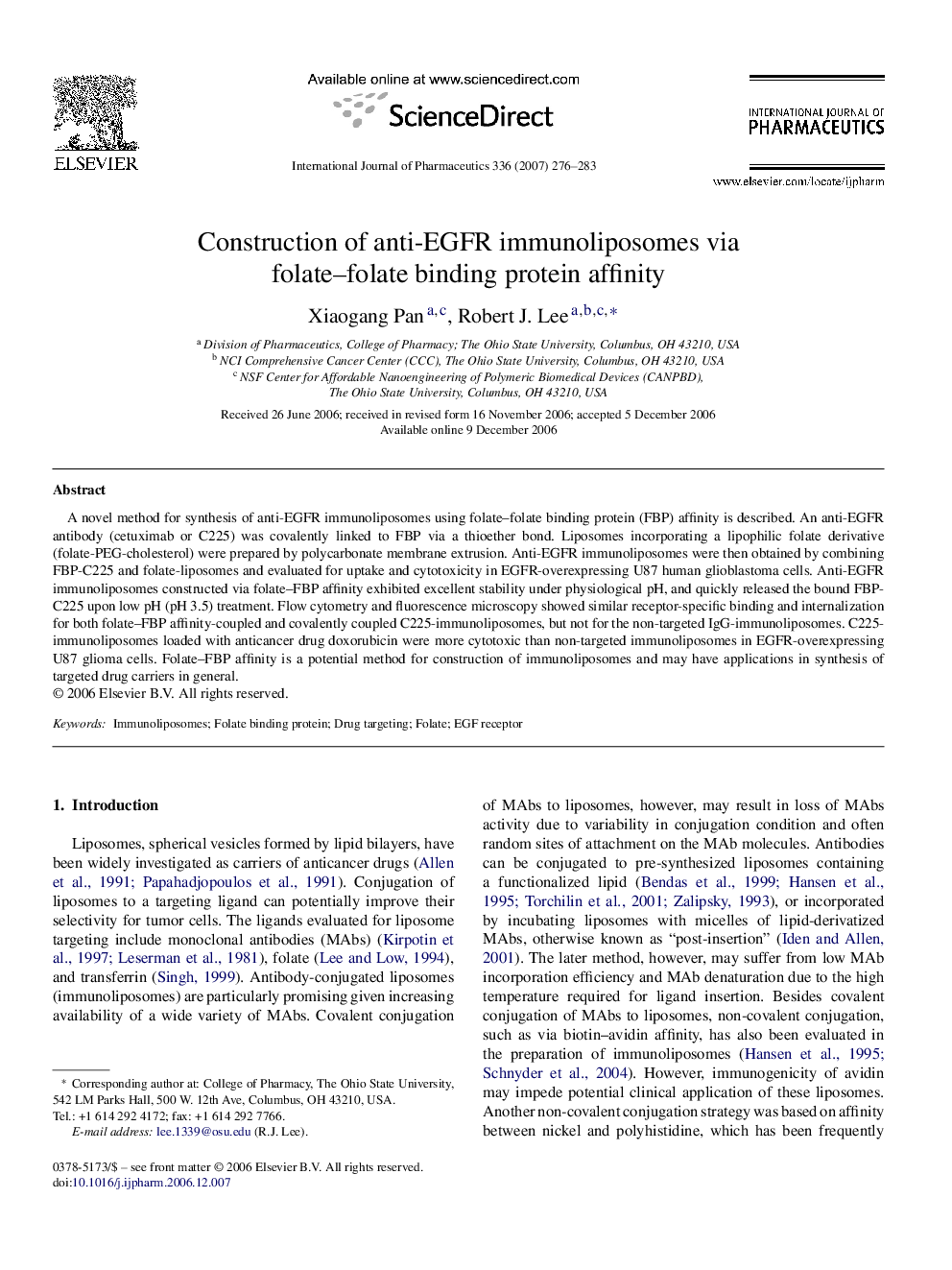| کد مقاله | کد نشریه | سال انتشار | مقاله انگلیسی | نسخه تمام متن |
|---|---|---|---|---|
| 2506125 | 1557510 | 2007 | 8 صفحه PDF | دانلود رایگان |

A novel method for synthesis of anti-EGFR immunoliposomes using folate–folate binding protein (FBP) affinity is described. An anti-EGFR antibody (cetuximab or C225) was covalently linked to FBP via a thioether bond. Liposomes incorporating a lipophilic folate derivative (folate-PEG-cholesterol) were prepared by polycarbonate membrane extrusion. Anti-EGFR immunoliposomes were then obtained by combining FBP-C225 and folate-liposomes and evaluated for uptake and cytotoxicity in EGFR-overexpressing U87 human glioblastoma cells. Anti-EGFR immunoliposomes constructed via folate–FBP affinity exhibited excellent stability under physiological pH, and quickly released the bound FBP-C225 upon low pH (pH 3.5) treatment. Flow cytometry and fluorescence microscopy showed similar receptor-specific binding and internalization for both folate–FBP affinity-coupled and covalently coupled C225-immunoliposomes, but not for the non-targeted IgG-immunoliposomes. C225-immunoliposomes loaded with anticancer drug doxorubicin were more cytotoxic than non-targeted immunoliposomes in EGFR-overexpressing U87 glioma cells. Folate–FBP affinity is a potential method for construction of immunoliposomes and may have applications in synthesis of targeted drug carriers in general.
Journal: International Journal of Pharmaceutics - Volume 336, Issue 2, 24 May 2007, Pages 276–283